It might be helpful to other applicants in the SOC panel to see an example of the ethics section as well, so I’m providing this example from 2015. It is very important to note, however, that the rules for personal and data protection have gotten more highly defined, and so it would not be a good idea to copy paste this for your own submission. It must be updated for current GDPR regulations, as well as being tailored to your topic.
For the full suite of posts:
• Abstract and Eval
• Excellence Section 1.1, 1.2, 1.3, 1.4
• Notes on using tables
• Impact Section 2.1, 2.2
• Implementation Section 3.1, 3.2, 3.3, 3.4
• Ethics Section (here)
• Final Report from 2016 submission
6 ETHICS SELF-REVIEW
This research study involves (1) interviewing women who are studying engineering at 3rd level and (2) conducting surveys with male and female engineering students. Because this project involves human participants, we must obtain informed consent from each participant. Informed Consent Form and Information Sheets examples are provided below. Ethics approvals will be obtained from the host institution and each partner university prior to any data collection (see Tables 2, 4, and 6). Profs. Chance and Tyler will accept responsibility for being ethical stewards of the data throughout its life cycle. This will be checked during the Milestone reviews that occur every six months, where, for instance, Dr. Chance will provide Prof. Tyler with proof that Informed Consent has been secured.
HUMAN SUBJECTS
All participants will be university undergraduates, postgraduates, or practicing professionals. They will all be volunteers, recruited with the help of their teachers (or, in the case of Poland, via the Perspektywy Education Foundation website). They will be solicited in class, during events, via list serves, and/or by email. They can withdraw their participation at any time and they will be informed of such on the Information Sheet and Informed Consent Form. Interview and survey participants will be asked three demographic questions:
- What is your gender?
- Were you born in the country where you are now studying?
- On which continent were you born?
Raffle prizes (such as Kindle readers or iTunes gift certificates) may be offered to encourage participation in the interviews and surveys. Prizewinners will be selected randomly, by drawing numbers from a hat.
Volunteers for surveys will be limited to students over age 18 who are studying engineering and/or architecture. The opening page of the online survey will include a concise Information Sheet and ask the participant to give informed consent before starting the survey by clicking “continue.” The content of the online survey will be generated in light of findings from the interviews and will be provided to the host institution’s Ethics Review Committee prior to commencing the survey.
Volunteers for interviews will be limited to students over age 18 who are women studying engineering and/or architecture. When they are recruited, they will receive an Information Sheet and be invited to provide their preferred form of contact (email or text number) so the researcher can contact them. The Informed Consent Form will explicitly ask if it is okay to keep the contact information on file for follow-up and will let each participant specify time limits and any other preferences/stipulations about use of her contact information, interview data, and personal data. Each interview participant will be asked to sign the Informed Consent Form before the interview starts. The content of the Information Sheet and the Informed Consent Form will be translated into Polish and Portuguese for use in those countries. These materials will undergo review by Ethics boards at UCL and our partner institutions in Ireland, Poland, Portugal, and the USA. Our primary goal with this research is to support minority students (in engineering this mans women as well as non-native born students and those belonging to groups of minority status in their country of study). We will make every effort to protect the interests of and to support the success of participants of minority status in our research, outreach, and dissemination. Prior to submitting for Ethics approval, Dr. Chance will carefully review UCL’s Data Protection guidelines, policies, and principles. She will meet with a member of the UCL Research Ethics Committee (i.e., UCL’s data protection officers) to discuss various aspects of the proposed work. The timeline for submitting ethics applications to UCL and the various partner institutions are provided in the Gantt chart (Table 6, in Section 3.1).
Check for collection of sensitive data
Interviewees may be asked to complete an epistemological survey instrument (an updated version of one produced by Kuhn, Cheney, and Winestock from Columbia Teacher’s College12) and to provide some basic demographic information as identified above. If we decide to include an epistemological survey questionnaire along with the interviews, information about the survey tool will be incorporated into the Information Sheet and Informed Consent Form. These personal data are of fairly low sensitivity, but nevertheless, UCL’s data protection officers will be consulted to ensure compliance and to advise the researchers if any specific authorizations from the national data protection authority are necessary. The ethics application/review process will include detailed information about the collection of the demographic data identified above, as well as the epistemological survey instrument.
SOCIAL SCIENCE AND HUMANITIES RESEARCH
This research involves online surveys and audio-recorded interviews. Interviews will be conducted in English, which presents one form of bias in sampling. Recruitment will happen in designated partner institutions, so there is also a convenience sampling bias. We will use extreme-case sampling for interview participants to get the most diverse points of view. In other words, we will be attempting to secure participation from native-born and non-native students in each location. Within the participating architecture and engineering programs, we will invite all registered students to complete the online surveys, which will be translated into the native language by a native speaker (working in consultation with the primary researcher to achieve the most accurate translation possible for each language).
Minimal risk/minimal burden. Questions will involve non-sensitive topics regarding experiences in engineering education. Risks associated with participating are extremely small. It is possible that participants could experience some emotional distress in reflecting on their past experiences, but not more than would be expected in the course of normal conversation. Participants’ identities will be kept confidential and references to actual names will be removed from transcripts, as detailed below; pseudonyms will be used in reporting.
Benefits of participation to the individual participation are the opportunity to reflect on past experiences and to contribute to research about engineering education, epistemological development, and design thinking.
PERSONAL DATA
Procedures for data collection, storage, protection, retention, transfer, destruction, or re-use.Personal data to be collected in this study will be collected through face-to-face interviews and online survey questionnaires.
Online surveys. No personal identifiers will be collected during online surveys—they will be completely anonymized. As per Horizon 2020 ethics self-assessment instructions, “completely anonymized data does not fall under data privacy rules (as from the moment it has been completely anonymized).” Responses to surveys will be stored in Excel spreadsheets, and analyzed using SPSS (Statistical Package for the Social Sciences) or similar.
Face-to-face interviews. The researcher is likely to know/record the name, email address and/or telephone number, gender, continent of birth, and national/non-national status for each interview participant. Processing of interviews will involve: collection of digital audio recordings, organization and storage, use, and deleting / destruction of audio recordings following transcription. If a prize raffle is held to encourage participation, email addresses will be collected, stored temporarily, and destroyed following the award of prizes. Interview data will be collected using digital sound recording devices and stored on a password-protected computer. Interview participants can choose to have their data included only in this study, or archived for future research, conditional on the restrictions listed on the Consent Form. The list of interview participants (with name, contact information, and identifying code / pseudonym will not be stored in the same digital archive as the transcriptions and audio recordings. Audio recordings will be deleted/destroyed following transcription. Data will be analyzed using Microsoft Word, Microsoft Excel, NVivo, Scrivener, or other specialized software for qualitative data analysis. At the beginning and end of each interview the researchers will ask the participant for both verbal and written confirmation that it is acceptable to archive the interview transcript for future use. Each participant will be asked to note in writing any specific limits for use of her data.
Use of previously processed data (secondary use). The longitudinal component of this study utilizes data collected during interviews conducted in Ireland (in 2014-15) and Poland (in 2015). Each participant has already provided written consent for archiving and ongoing use of her interview data, following the same procedure described above. These procedures were reviewed and approved by DIT’s Ethics Review Committee and by WUT’s Rector. These data have been and will be collected, stored, and processed in the ways stated above. Dr. Chance is the manager of these data, which are owned by Dr. Chance and the respective interview participant.
Privacy and data safety protection procedures. All individual information collected as part of the study will be anonymous—the identity of participants will be known only to the official research team. Data may be included in future conference presentations and publications, but at no time will it be possible to identify it as belonging to a specific individual. Information will be used solely for Dr. Chance’s research. It will be stripped of any personal identifiers and stored securely in password-protected electronic format pending possible continuation of the study. Data will be stored on two external backup hard drives and on UCL’s encrypted servers. Dr. Chance will provide Prof. Tyler with evidence that agreed-upon procedures for protection of personal data are being upheld during the Milestone reviews that occur every six months.
THIRD COUNTRIES
The only third country involved in this study is the USA. Ethical research standards and procedures are clear and well enforced in universities in the USA that will be involved in this study (Hampton University and the College of William and Mary). Procedures will follow those described above.
INFORMATION SHEET
DESIGINING ENGINEERS
Note: This is an example Information Sheet for Research Participants–the one that was actually used was updated to meet UCL specifications and all current GDPR regulations:
You are invited to participate in a research study about your experiences with project work, design, and design projects in engineering and/or architecture. The research team has received approval from your institution’s research ethics committee. Please read the following information before deciding whether or not to participate.
What are the objectives of the study? Dr. Shannon Chance is conducting this study because she wants to understand what it is like to be an engineering or architecture student, to experience project work, and to think about design and knowledge.
Why have you been asked to participate? You are engineering and/or architecture courses and you have experience of project work and/or design.
What happens if you agree to take part?
- Information about you will be treated in strict confidence.
- You will be asked to schedule a time for an interview at a time and place that suits you. You’ll be provided with Dr. Chance’s telephone/text number so that you can use it to make scheduling changes if necessary.
- During the interview, we will chat about your experiences for about an hour. Before we start, you will be asked if it is okay to audio record what you say. You will be asked if you’d like a written copy of your interview for your records and/or to check for accuracy. Dr. Chance will also ask if she can keep your permanent email address and telephone number on file so that she can follow up with you in later years to talk again. (You can still participate in this study if you do not want to provide that information or if you don’t want her to keep it.)
Benefits of participating: The benefit of participation to you is the chance to talk about what you are going through in your engineering program—which can be a fun learning experience. By participating, you can also help teachers understand what it’s like to be an engineering student and how they can support students who are learning engineering and design.
Are there any risks involved in participation? There is very little risk associated with participation. In the unlikely event that talking about what you’re going through causes distress, Dr. Chance can help you locate support services or you can go directly to [TBD office or website at each university], which provides a list of support services available to students on your campus.
Participants’ rights:
- Your participation in this research project will not influence your academic marks or your relationship with your institution in any way.
- You may decide to stop being a part of this study at any time, and you do not need to explain why. You can omit or refuse to answer or respond to any question that is asked of you if you feel uncomfortable. If you decided to stop participating, you have the right to request that all data about be withdrawn from the study you (including the interview recordings, transcriptions, and contact information).
- You have the right to have all your questions about the study and the research methods answered. If you have any questions as a result of reading this information sheet, please ask Dr. Chance before the study begins or email her at any time.
Confidentiality: Your identity will remain secret/anonymous. Your data may be included in future publications and conference presentations, but at no time will it be possible to identify it as yours. All information will be reported using pseudonyms (fictitious names, rather than real names). Your interview data will be stored using a code, and it will be kept separate from your actual name and contact information.
If you’d like to set any additional restrictions for use of your data and your contact information, please let Dr. Chance know now or at the end of the interview.
FOR FURTHER INFORMATION
If you want to find out more about the study or would like a summary of the results, you can contact:
Prof. Shannon Chance, [email and phone number were provided]
Prof. Nick Tyler, [email and phone number were provided]
Note: This is an example Consent Form–the one that was actually used was updated to meet UCL specifications and all current GDPR regulations:
CONSENT FORM
DESIGINING ENGINEERS
PLEASE CIRCLE YOUR RESPONSE TO EACH QUESTION
• I have read and understood the attached Information Sheet YES / NO
• I have had the opportunity to ask any questions I have about the study YES / NO
• I have received satisfactory answers to all my questions YES / NO
• I understand that my data will be used for research purposes and stored securely on a password protected device in a secure location until the end of the project, when they will be destroyed, unless I grant additional permission for their use below*. YES / NO
• I would like to receive a written copy of my interview transcript YES / NO
• I understand that I am free to withdraw from the study at any time YES / NO
without giving a reason and without this affecting my college studies
I agree to take part in the study YES / NO
You may, in addition, agree to have your interview transcript (without your name or any personal identifiers) archived for future similar research. Please read the note below and decide whether you wish to agree to this element:
I give my approval that these anonymous data concerning me may be stored or electronically processed for the purpose of scientific research and may be used in this research project, and, potentially, in other research studies in the future. (Any future use of the anonymous interview transcripts related to me would still be subject to approval by an independent ethical review body.)
Please tick I agree [ ] I do not agree [ ]
I make the following stipulations regarding the use of my data or length of time my data may be archived:____________________________________________________________________________________________________________________________________________________________________________________________________________________________________________________________________________________
FOR FURTHER INFORMATION
If you want to find out more about the study or would like a summary of the results, you can contact:
Prof. Shannon Chance, [email and phone number were provided]
Prof. Nick Tyler, [email and phone number were provided]
DIT Research Ethics Committee notes from prior research:
- For persons under 18 years of age the consent of the parents or guardians must be obtained or an explanation given to the Research Ethics Committee and the assent of the child/young person should be obtained to the degree possible dependent on the age of the child/young person. (For this study, we do not intend to recruit under-age participants.)
- In some studies, witnessed consent may be appropriate. (We do not anticipate any need for witness consent.)
- The researcher concerned must sign the consent form after having explained the project to the subject and after having answered his/her questions about the project.



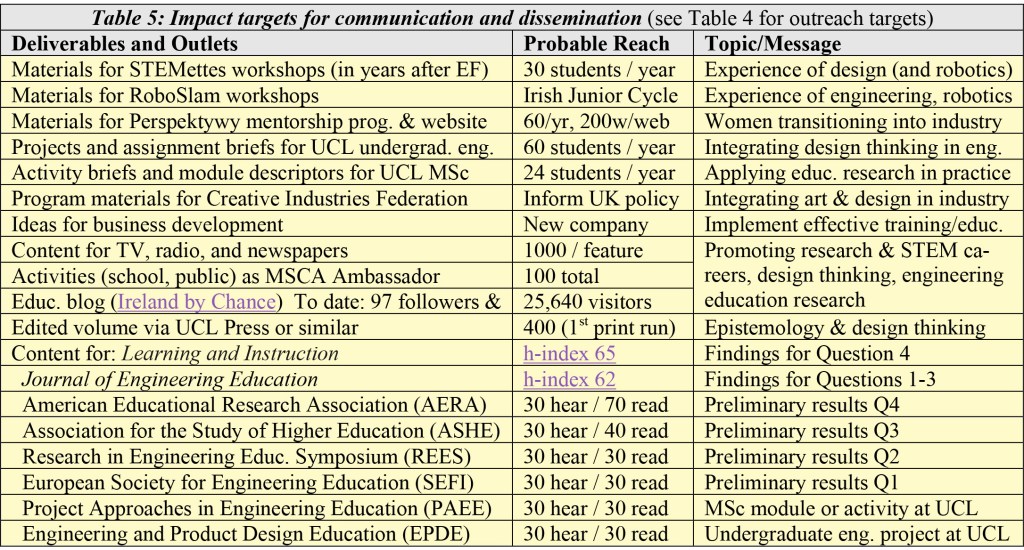
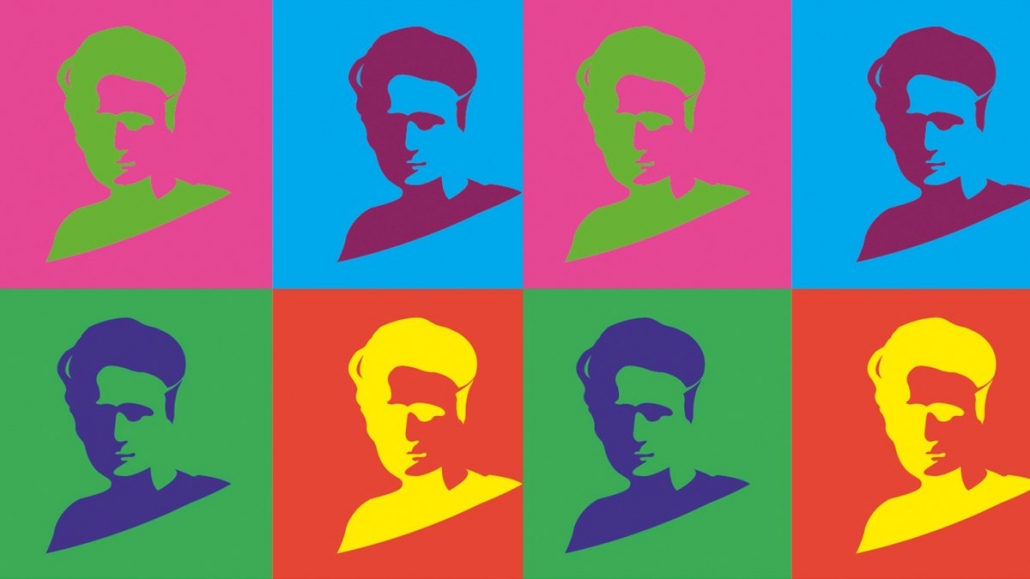

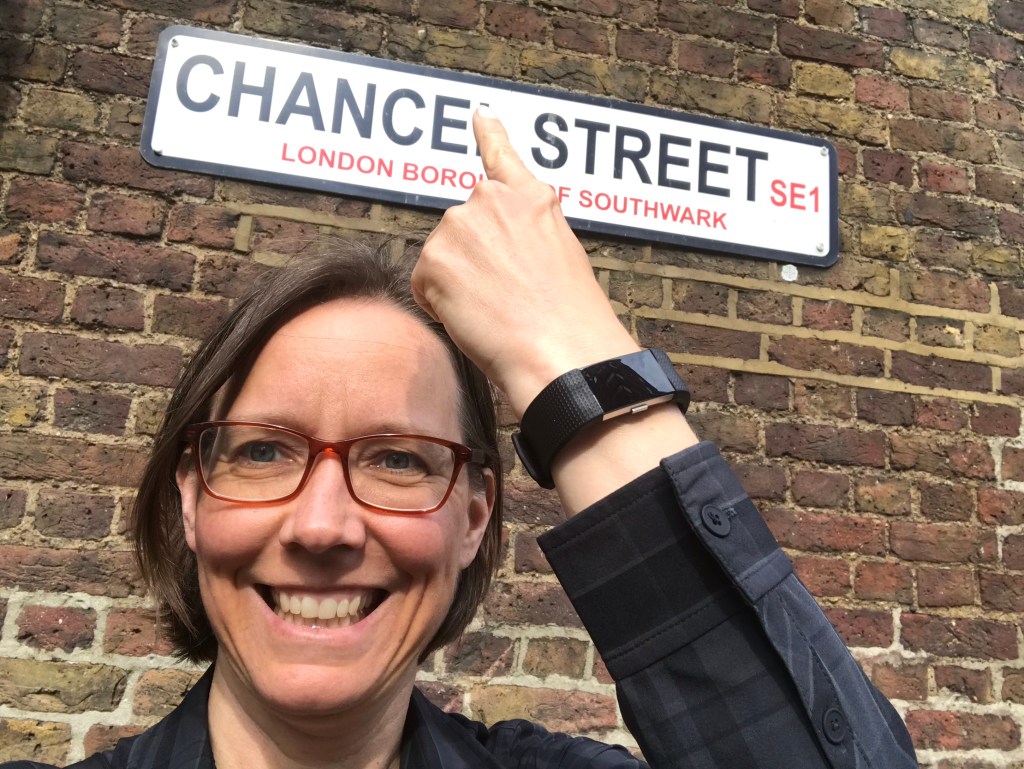
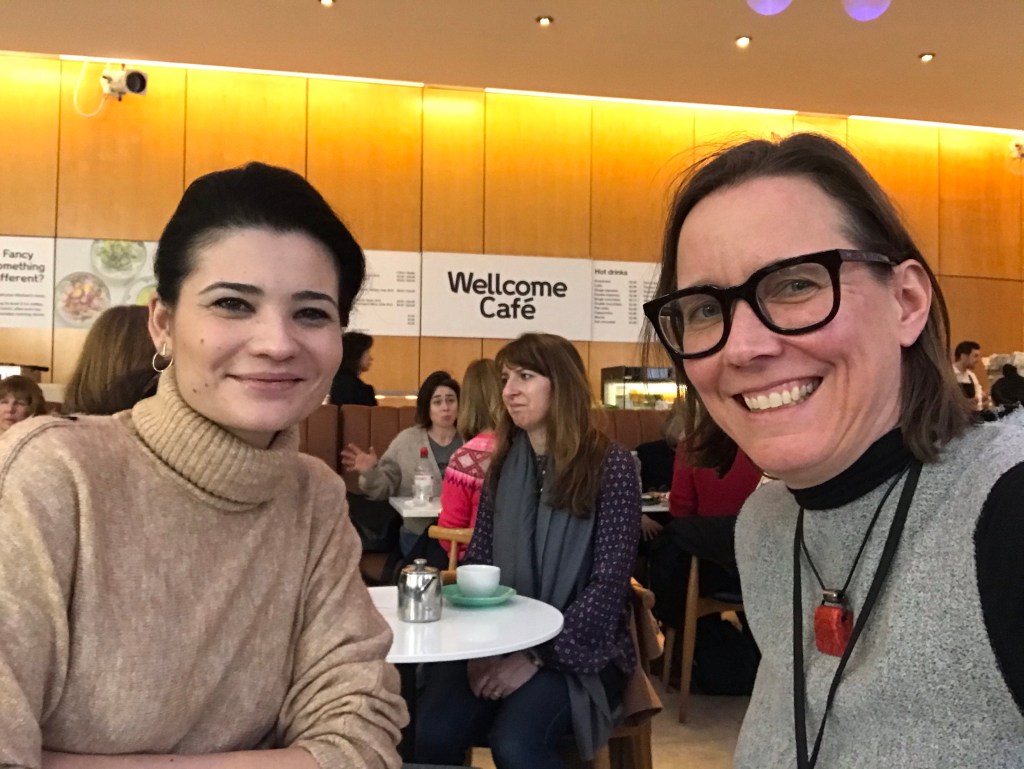
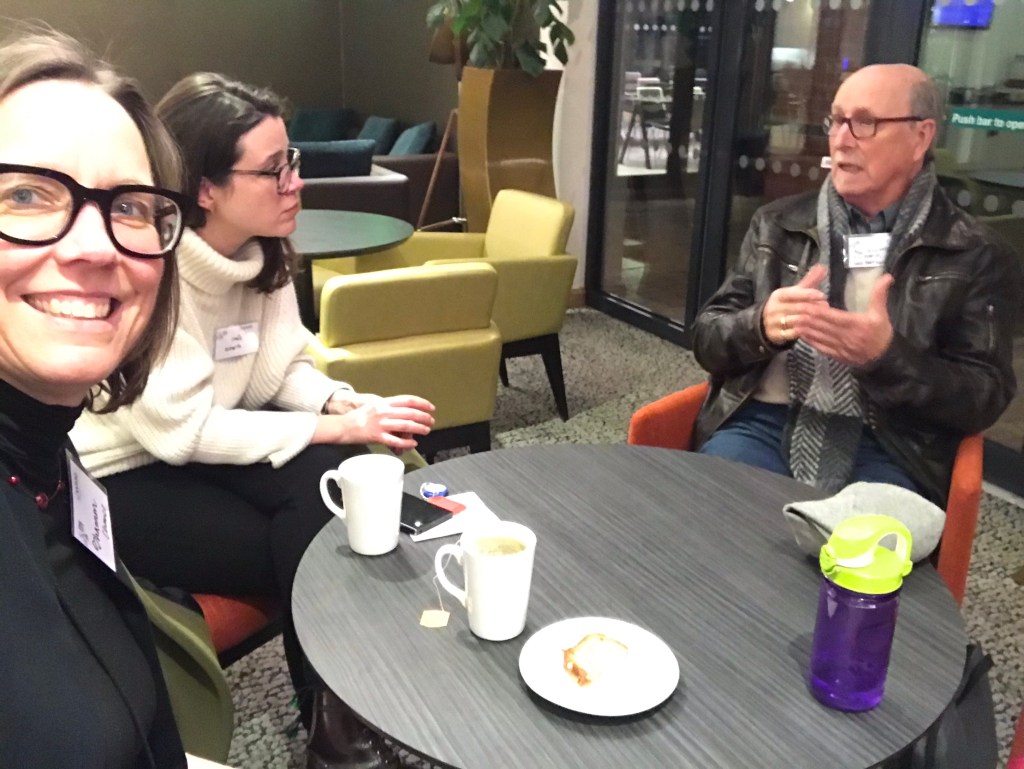
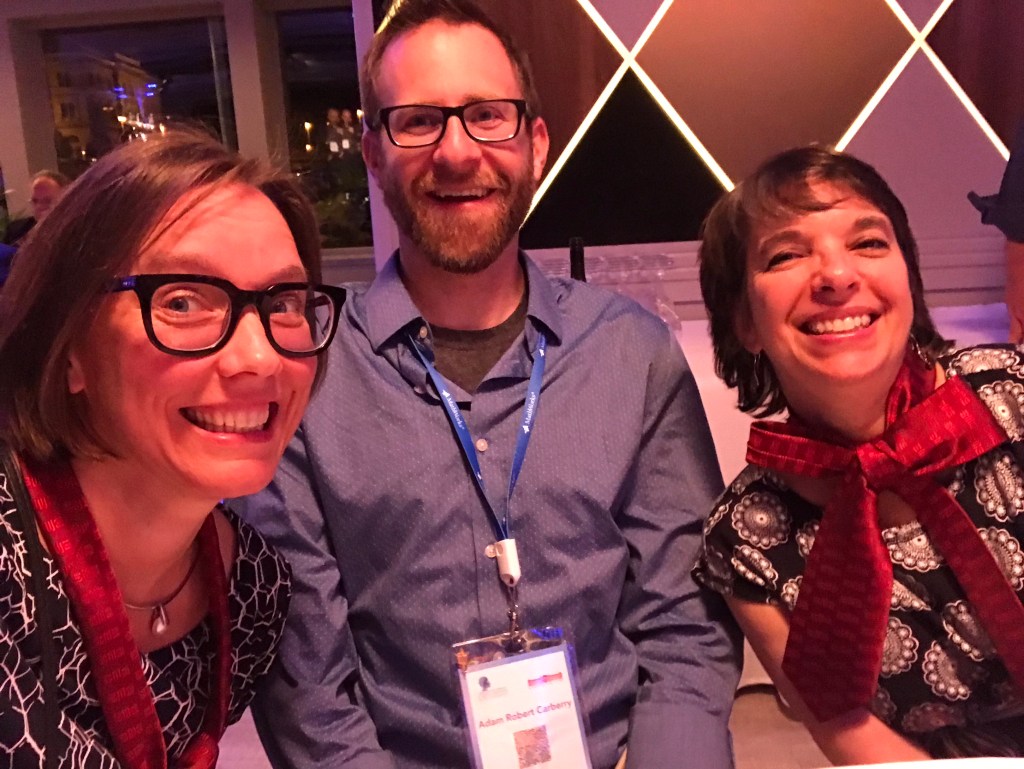
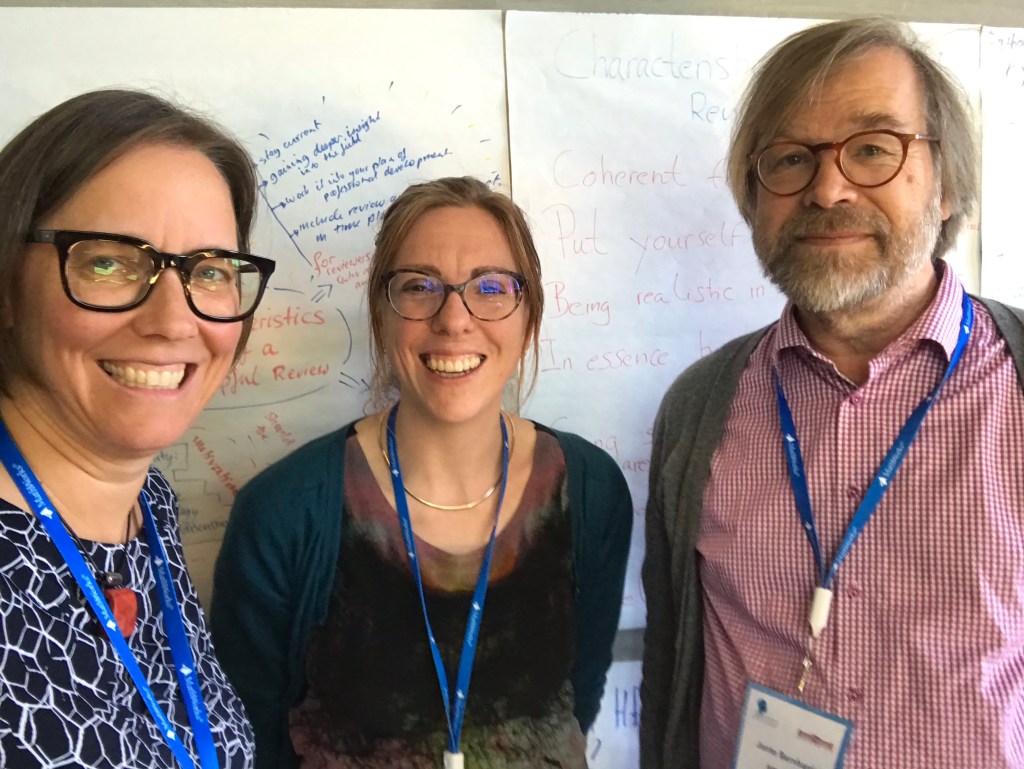
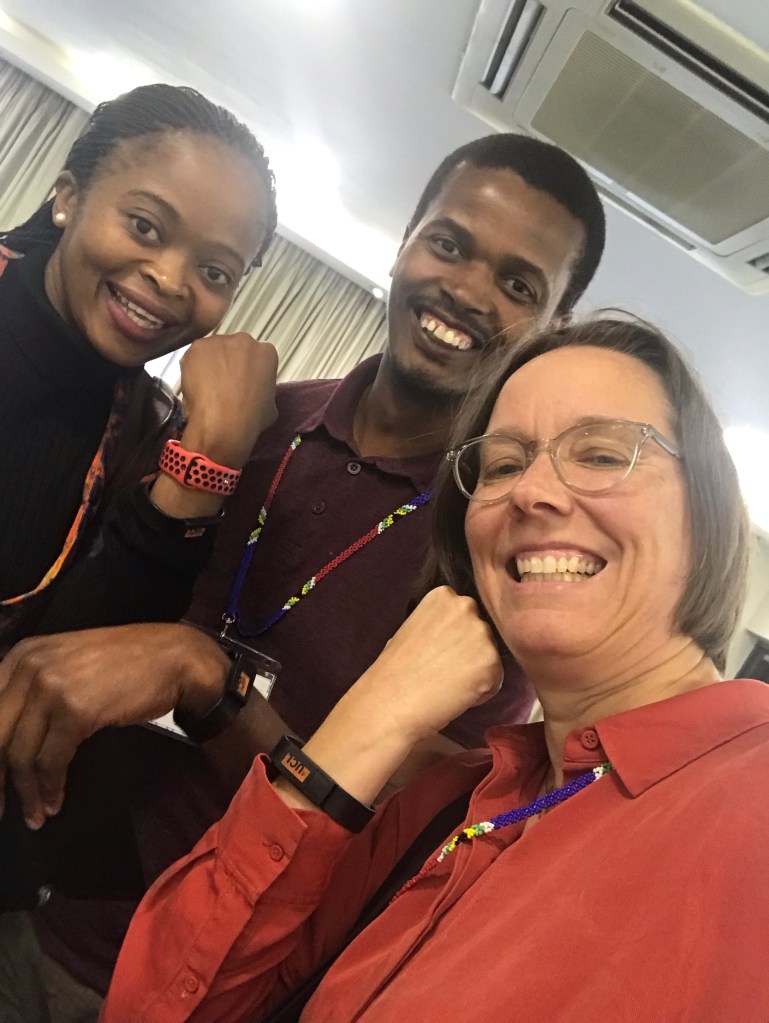
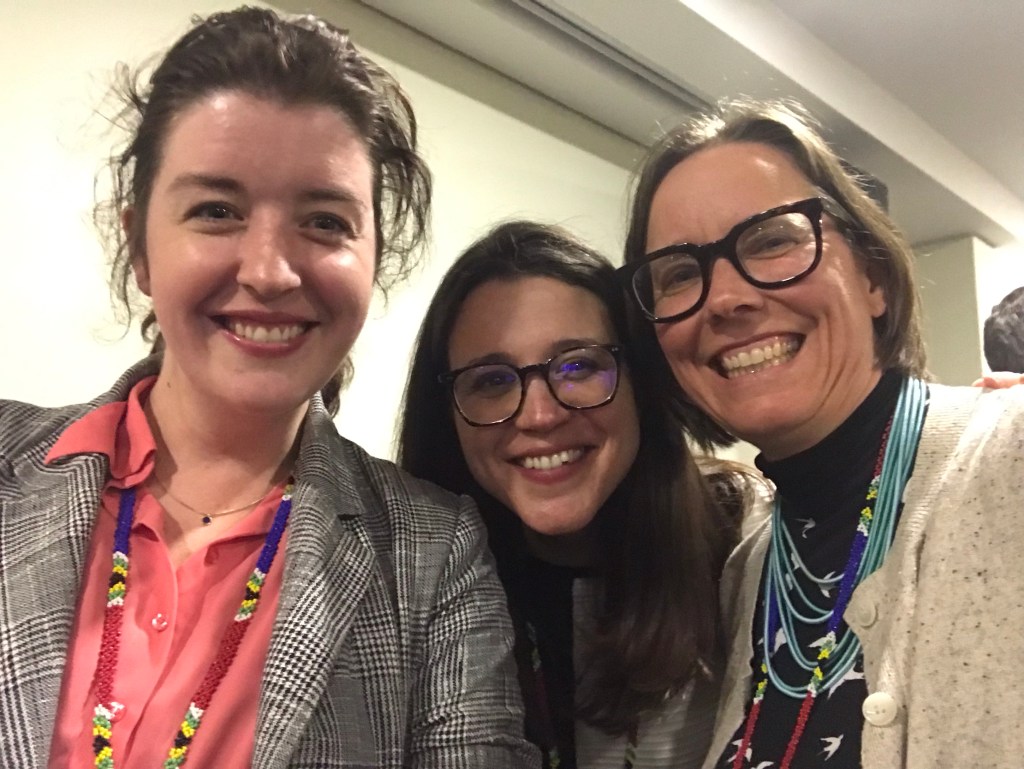
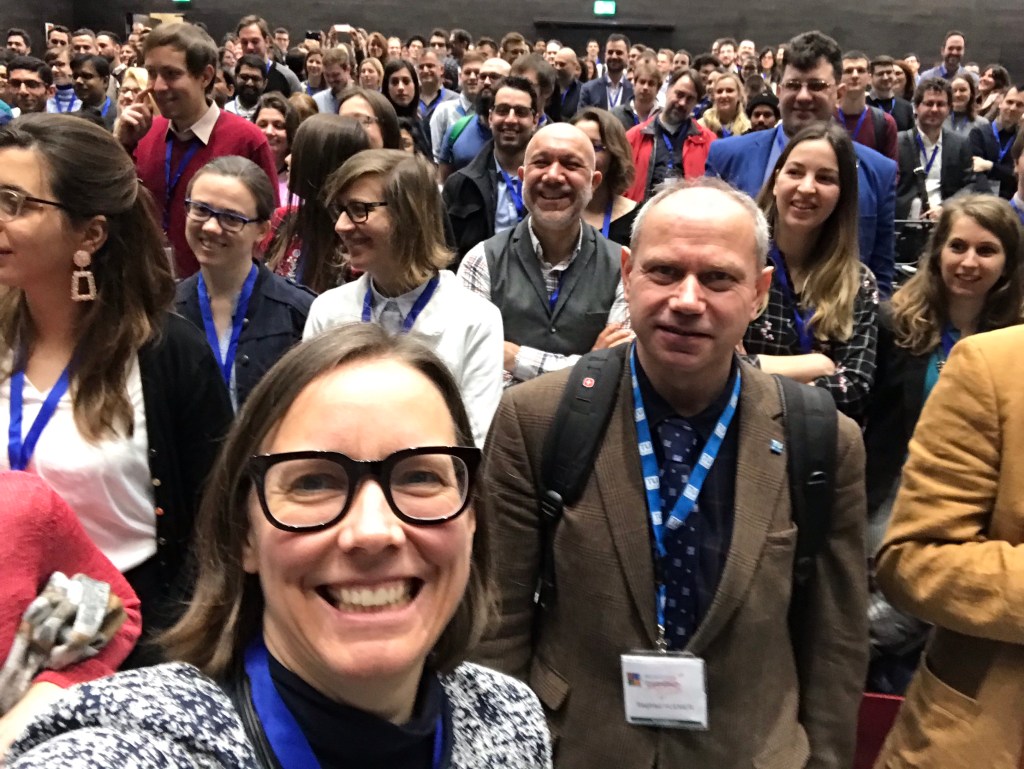
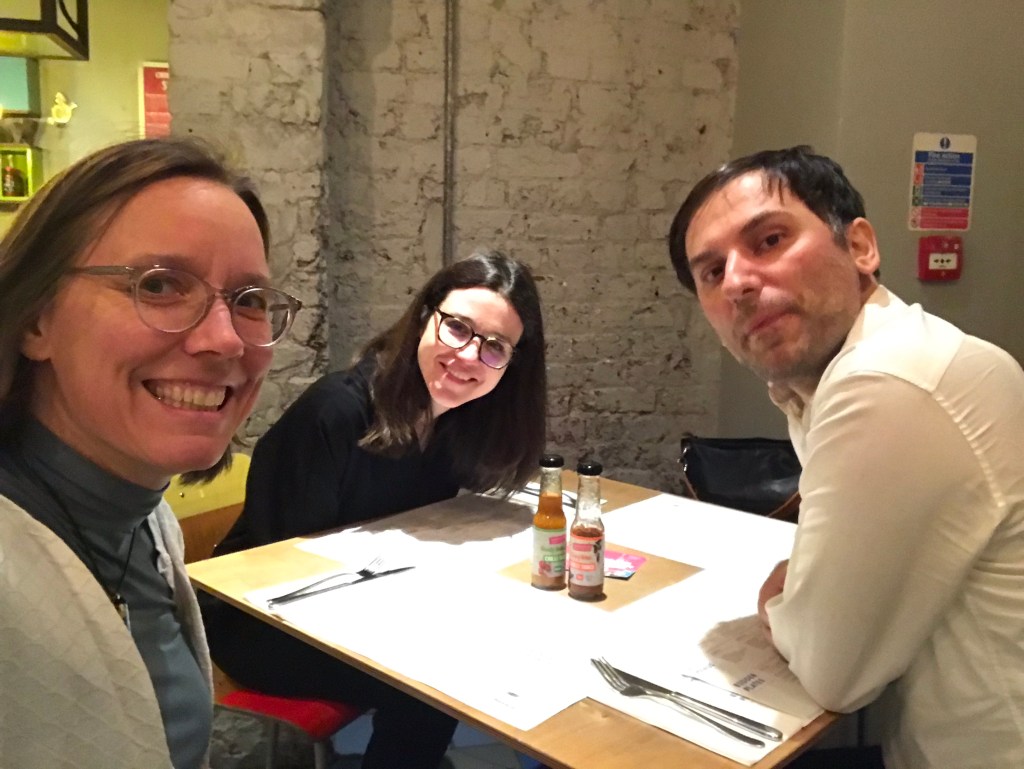
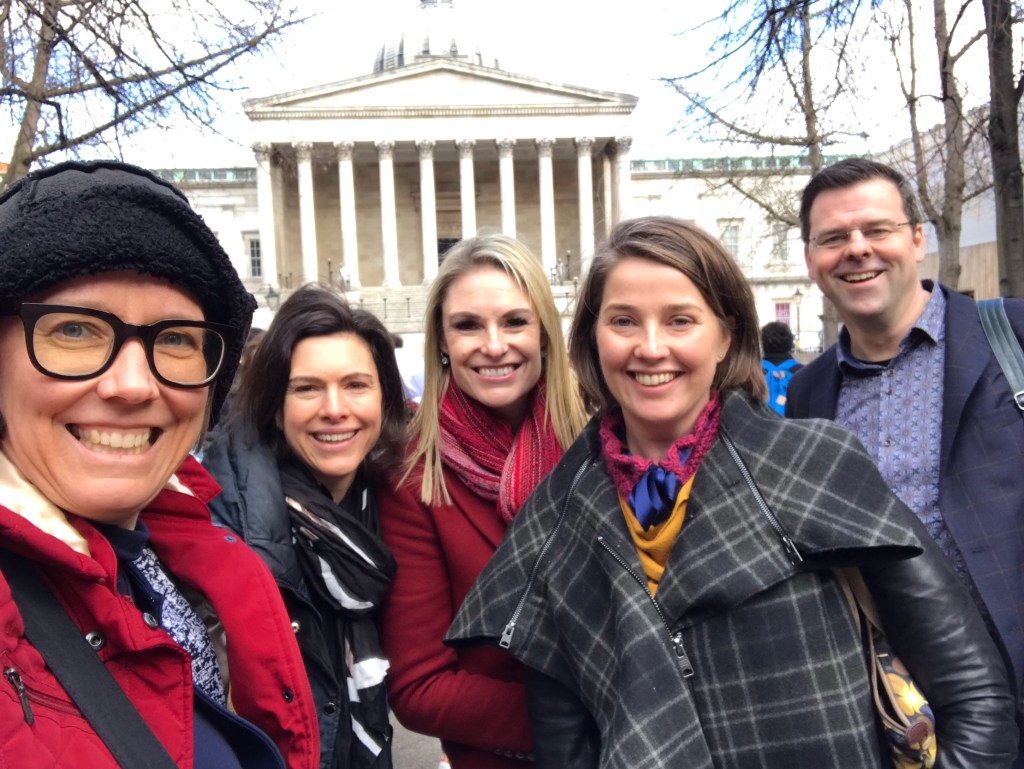

 I joined a group of philosophers for a February 19-20, 2016
I joined a group of philosophers for a February 19-20, 2016 
